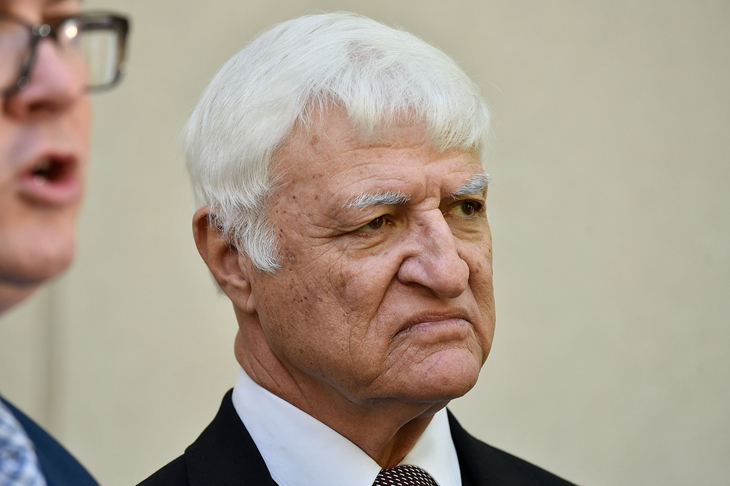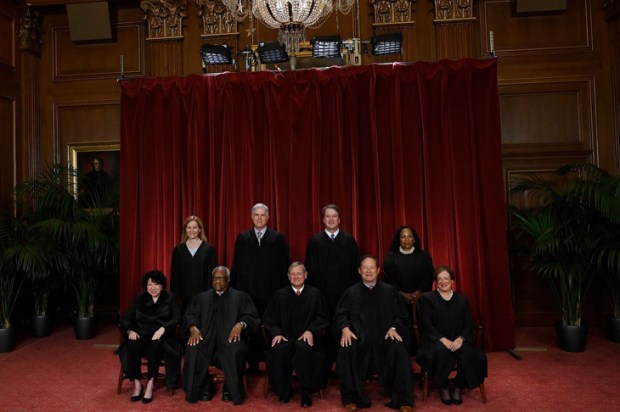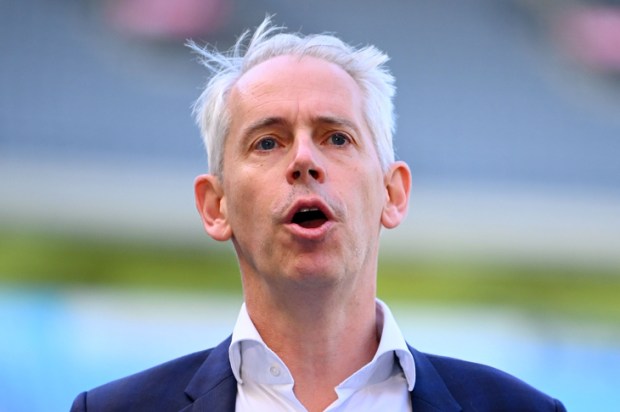In the National Party room… everyone…tenaciously… opposed dairy deregulation. (But) when they came back in here (into the chamber), they all held their hands up (to vote for it) — Bob Katter, Hansard, 26 November 2019.
This is not the only example of duplicity by politicians. Too many today operate on the principle that the ordinary Australian must do as they say, and not as they do.
The most egregious example is that while they insist that emissions be severely reduced even if businesses close, jobs disappear and electricity is unreliable and unaffordable, politicians have CO2 footprints many times that of ordinary Australians. Surely, their flights should be rare and always in economy.
Politicians thus demonstrate that they have no shame. Take those on the Sydney City Council. While declaring a climate emergency, CO2 emissions from their travel increased by 40 per cent, with Lord Mayor Clover Moore attending a ‘Women for Climate Change Conference’ in — where else? — Paris. And with parliaments closing down for summer, politicians will fill the luxury classes on flights to air-conditioned tourist palaces across the world.
This arrogance is yet another example of the contempt the elites have for ordinary Australians, with their greatest being reserved for the farmers who are constantly persecuted by the ‘environmental’ secret police. The cases of Johnny Williams whose herd of cattle was recently seized or Dan MacDonald fined $112,000 for feeding his starving cattle with his own mulga are examples of what can only be a campaign to rid the nation of farming families.
To the elites, judging public policy through Alan Jones’ famous ‘pub test’, a powerful allegory for common sense, is dismissed as a reliance on the opinion of uninformed simpletons. That is why they control the parties where preselection is based more often than not on loyalty to a powerbroker rather than merit.
Why should we complain when this has given us the NBN, the nuclear energy ban, almost no water harvesting and the massive accumulation of bushfire fuel in the national parks? Or that it has left us defenceless, is destroying manufacturing, fishing and agriculture and is condemning the next generation to increasingly inferior education compared with countries significantly poorer than us?
The phenomenon of a political class being out of touch is not limited to Australia. But as Bob Katter has demonstrated by reference to the ruin of our agriculture through the obsessive application of free trade and deregulatory policies, it is worse here than in any comparable country.
If you want to see a party which is — unlike ours — open transparent and democratic, look no further than America’s Republican party which, despite the years in the swamp after Ronald Reagan, is one of the few which could have allowed a leader of the rare qualities of Donald Trump to emerge and to do exactly what he promised, to make America great again.
Contrast that with the way in which the elites not only brought Tony Abbott down but removed him from parliament, indicating the level of fear they had as to his possible resurgence. Let them be warned, he is there, waiting, in his antipodean Colombey-les-Deux-Églises
To understand the enormity of what Katter is railing against, it is necessary to go back to what Paul Kelly calls the ‘Australian settlement’, the formula for nation-building adopted at federation. Based on a living wage for all being enough to support a man, wife and three children with old-age pensions and maintained through protectionism, it was shamelessly secured against the fear of low-wage immigrant competition by the White Australia policy.
Apart from the ending of White Australia under Holt, most dismantling of the Australian settlement began under Whitlam and was completed under Hawke and Keating.
This was for the politicians to apply universally, without any of the nuance that common sense would demand, a series of useful and occasional economic tools and concepts which were converted into absolute dogmas; in particular, free trade, privatisation and deregulation. Only later did they add the increasingly discredited global warming theory. Curiously, the most avid proponents seem to be mainly socialists.
The first manifestation of this approach was by Whitlam when he ordered a unilateral 25 per cent across-the-board cut in tariffs, a surprising decision for a Labor government. As they closed down water-harvesting and the nuclear industry, the Hawke and Keating governments made this a key policy.
Australia thus foolishly stripped herself naked for trade negotiations, especially the later so-called free trade agreements. Forced to offer reciprocal concessions, these necessarily moved to non-trade areas such as immigration and foreign investment. Such ‘investment’ often involves no more than taking over home-grown successes or title in perpetuity to rich agricultural land bought in a drought for a song. Too often the purchaser is not an ordinary corporation, but an entity under the ultimate direction of an alien and potentially hostile communist party.
The justification for this unilateralism was that it would allow us to concentrate on what we do best, agriculture, ignoring the fact that neither Europe nor Japan nor the US would ever give up protecting their farmers from our competition.
Yet another delusion was that by our ‘moral’ example in unilaterally abandoning protection (and subsequently, changing to a republic or more recently massively increasing the price of electricity) Australia would gain credit from and be followed by other countries.
Added to that was another, with the Hawke government believing that abandoning protection and thus sending manufacturing to Asia was the price for Asians buying our mining exports. In actual fact, our minerals are bought for two reasons and two reasons only, price and quality.Having strangled manufacturing, fishing and agriculture, the political elites are preparing to obey the ‘warmist’ instructions for the next phase in the destruction of Australia, closing down mining.
If Australia is to be saved, it is time surely to make the coming decade the twilight of the elites.
Got something to add? Join the discussion and comment below.
Get 10 issues for just $10
Subscribe to The Spectator Australia today for the next 10 magazine issues, plus full online access, for just $10.
You might disagree with half of it, but you’ll enjoy reading all of it. Try your first month for free, then just $2 a week for the remainder of your first year.














Comments
Don't miss out
Join the conversation with other Spectator Australia readers. Subscribe to leave a comment.
SUBSCRIBEAlready a subscriber? Log in